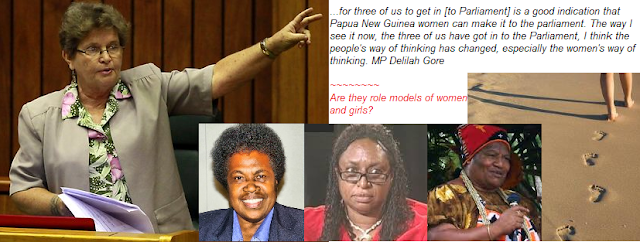To make progress in a changing world, the education system has to evolve and adapt to social, demographic, technological and other modern changes. Reforming the education system was one way to adapt to these changes.
Papua New Guinea National Education Plan
Papua New Guinea National Education Plan 2005 to 2014 was an important document. It encompassed the development phases of elementary, primary, secondary and technical education in detail. It was a 10-year working plan, thoroughly outlined to guide every stakeholder involved in giving and receiving educational services.
The aims and time-frame for achieving each outcome was clearly indicated in a 148-page document. Challenges identified by the working committee have remained the
same to this day.
Why were those challenges not addressed according to the timeline? What made
it so difficult?
Growth, Quality, Financing, Maintainable and Management.
There were (are) 5 main challenges: Growth, Quality, Financing, Maintainable and Management.
Lets start with the first challenge.
The NEP 2005 - 2014 working committee realised that retention of students population between elementary and secondary schools was challenging. This was recorded in the Situation Analysis report:
….improving retention through the years of basic education; improving the delivery of education services in rural and remote areas; strengthening the vocational education and training sector to support appropriate courses to make better use of partnerships with the private sector and community agencies, and securing adequate government budget support for the reform to manage the enrollment growth. [NEP 2005 – 2014, Situation Analysis pp 21 – 37].
The NEP 2005 - 2014 working committee realised that retention of students population between elementary and secondary schools was challenging. This was recorded in the Situation Analysis report:
….improving retention through the years of basic education; improving the delivery of education services in rural and remote areas; strengthening the vocational education and training sector to support appropriate courses to make better use of partnerships with the private sector and community agencies, and securing adequate government budget support for the reform to manage the enrollment growth. [NEP 2005 – 2014, Situation Analysis pp 21 – 37].
PNG Education reform and retention problems
By 2005, the Reform would have been implemented for 12 years. There were two retention problems - students pulling out (those leaving the school at their own will between elementary and secondary school) and students dropping out (those leaving after examination at Grades 8, 10 and 12). Controlling the earlier problem was documented.
But, the latter was not. The WB and working knew maintaining school attendance was going to be tough. What they didn't foresee was the increase in the number of students who would have actually left at the end of Grades 10 and 12.
Any responsible government would have seen the need to prepare universities and colleges to accommodate students at the end of their examination years. That was where successive PNG governments have failed, and continue to fail their young citizens.
When is retention likely to improve? Perhaps Papua New Guineans who
are supposed to advise successive governments on policy matters failed the people. Maybe the WB could have looked at things differently at the beginning of Education Reform.
National education system cannot sustain a growing population
The fact of the matter is that two decades later, the national education system cannot sustain a growing population.
The Education Reform created a bottled neck effect. Though insignificant during the early Reform days, this effect has had a big generational impact 22 years later.
The strain on the system is shocking when only 1 in 5 Grade 12 students makes it to a tertiary institution.
It is reasonable to maintain a good flow of students from one stage to another. What happens to 80% of young men and women? Why didn't any development take place at the tertiary level? Apparently, a World Bank [WB] condition restrained any growth at tertiary institutions. This was clearly indicated in a press release from Australian National University.
It is reasonable to maintain a good flow of students from one stage to another. What happens to 80% of young men and women? Why didn't any development take place at the tertiary level? Apparently, a World Bank [WB] condition restrained any growth at tertiary institutions. This was clearly indicated in a press release from Australian National University.
In part, it reads “… The World Bank, for example, in the mid-1990s, was prepared to support only development projects that targeted universal basic education and would not entertain forms of assistance at the tertiary level of education.”
PNG government was bowing to WB.
Instead of developing the whole system, it created lots of elementary,
primary and secondary schools all over the country, without any expansion at the higher level to absorb the output.
In fact, any chance of growth in higher education was stalled as a direct result
of the WB condition given as shown in the ANU report.
After 2 decades of the Reform and the result is there for all to see. There are only 4500
spaces at tertiary institutions today. Of the 21430 Grade 12 students, over
16000 will be ejected from formal tertiary education. This is real, it is
frightening.
~~~~~~~~~~~~~~~
I would like to make it clear that this article does not intend to throw the egg on the government, or WB or education officials. It simply questions why government ignore a challenge identified in the National Education Plan 2005 to 2014.
~~~~~~~~~~~~~~~
~~~~~~~~~~~~~~~
I would like to make it clear that this article does not intend to throw the egg on the government, or WB or education officials. It simply questions why government ignore a challenge identified in the National Education Plan 2005 to 2014.
~~~~~~~~~~~~~~~





